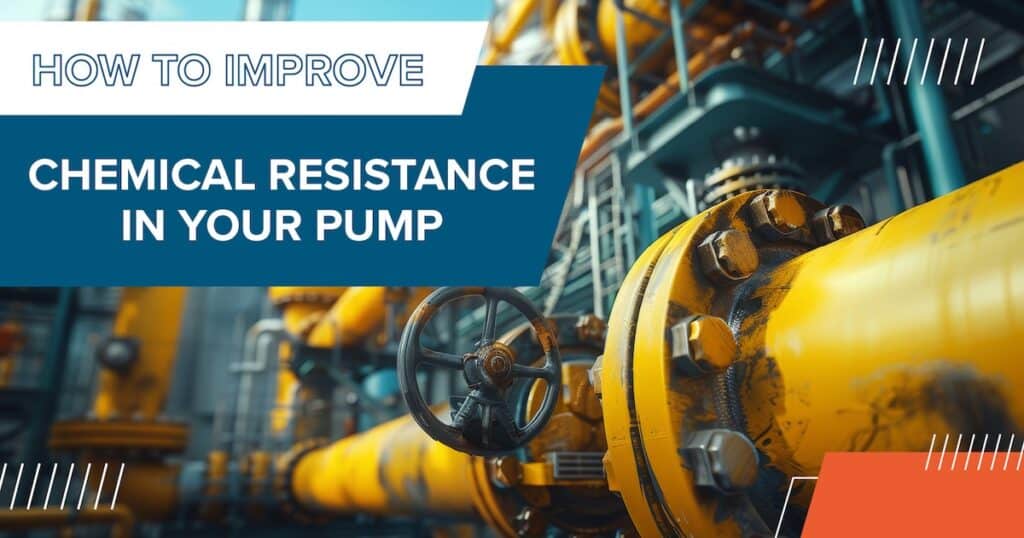Running chemicals through a pump system provides many unique challenges compared to most other pump applications. Chemicals can be caustic, acidic, corrosive, and usually hazardous. They can expedite wear and tear on the pump equipment and cause catastrophic damage if the machinery isn’t properly configured.
Eliminate Chemical Leakage Risks
Another serious concern is leakage. You don’t want outside contaminants seeping into the system and compromising the sensitive chemicals being pumped, and obviously you can’t afford to have chemicals leak out of the equipment, piping, or storage tanks. This can be dangerous for your workers and present serious environmental pollution concerns, including costly fines and government shutdowns.
The Importance of Chemical Resistance
Chemical resistance is a top priority for any chemical pumping operation. Any pump parts exposed to the chemicals being pumped must meet strict chemical resistance requirements. Some of the most sensitive components and common failure points in chemical processing include the valves and mechanical seals. It is critical to select the ideal component designs, construction materials, and coatings to provide ample chemical resistance.
Manufacturer Research and Resources
The good news is manufacturers understand the importance of chemical resistance when it comes to their pumps and parts. This is why many pump components are manufactured with a variety of construction material or coating options to provide specific resistance ratings against chemicals, acidic fluids, or other corrosive materials that would break down standard equipment. Most manufacturers use careful lab testing to understand chemical effects on certain parts and materials.
Thanks to this testing and research, you can generally find detailed chemical compatibility ratings on manufacturer websites. These resources are extremely valuable for any operator looking to achieve optimal chemical resistance within their pump equipment. All chemicals have their own unique properties. Thus pump materials have different resistance ratings. What may be resistant to a highly caustic and hazardous chemical may not work for a relatively mild chemical. These manufacturer guidelines can provide you with the information needed to make smart decisions when it comes to chemical resistance.
Different Materials, Different Resistance
For example, chlorinated polyvinyl chloride (CPVC) is a common resin used to coat valves and pipes. This stands up well against caustic solutions like sodium or potassium hydroxide. Meanwhile, seal elastomers made from fluorocarbon rubber (FKM) provide excellent chemical resistance for a variety of chemicals and fluids. However, they typically fail against these caustic solutions. An ethylene propylene diene terpolymer (EPDM) is generally recommended for seal durability in these conditions.
Many types of construction materials and coatings can be used for all wetted pump parts that may experience excess corrosion and damage from certain chemicals. Consult with experts to ensure the best chemical resistance results. Sound decisions now can save you ample time, money, and headaches in the future. Prevent leaks and pump failures long before they happen with proper pump selection, component configuration, construction materials, and coatings.
For all your pump and component selection needs based on your specific chemical or fluid processing application, contact DXP Pacific today.

